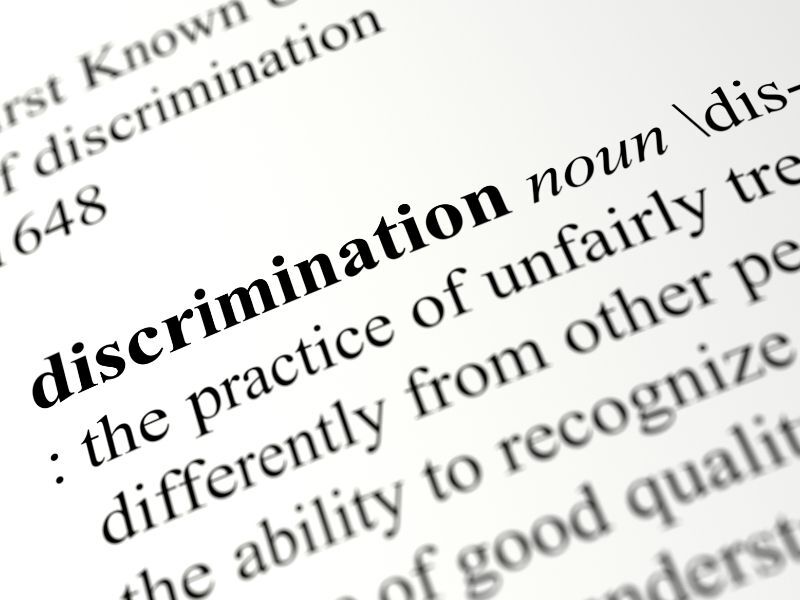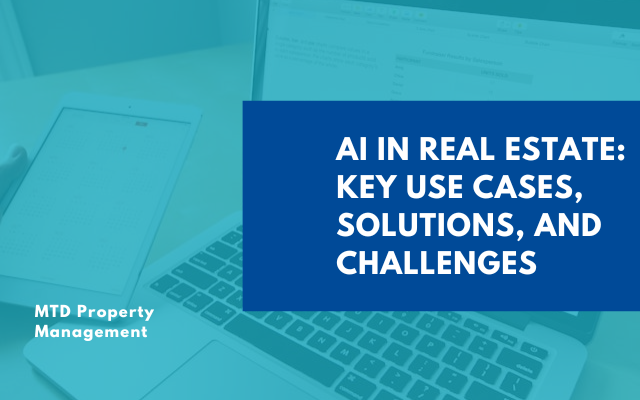
Landlords in Illinois must treat their tenants fairly and equally as per the Fair Housing Act. The federal fair housing law was passed by Congress in 1968 to help address housing discrimination in the housing market.
In this article, we here at
MTD Property Management will outline the essential things to know about the federal fair housing act in real estate transactions.
Illinois Fair Housing Act: An Overview
How Did the Federal Fair Housing Act Come About?

With over 5 decades in existence, fair housing regulations are some of America’s strongest pieces of legislation. It was brought into law by President Lyndon Johnson in 1968. It prohibits discrimination with regard to the sale, rental, and financing of housing based on some protected characteristics.
At the federal level, the protected characteristics in real estate transactions are race, color, religion, disability, sex, national origin, national origin, and familial status. Race is one of the core protected classes, and landlords must ensure they are not discriminating based on this or any other protected characteristic.
Illinois law also prohibits discrimination in real estate transactions and provides additional protections for tenants and prospective homeowners.
In a real estate transaction, landlords must ensure they do not discriminate based on any of these protected characteristics when renting, selling, or financing housing. Landlords must also be aware of their tenants' fair housing rights to avoid potential legal issues.
Additionally, they may not discriminate by requiring discriminatory application processes, such as screening for characteristics that fall under protected classes as outlined in the Fair Housing Act and federal law. They should also avoid questioning prospective tenants about their income in ways that could be seen as discriminatory.
A person’s income level should only be considered in relation to their ability to pay rent and should not be used to unfairly discriminate against someone based on their background or status, in accordance with the Fair Housing Act and federal law.
A fair approach is to focus on the income needed to meet rent obligations, rather than any other personal factors. Every person should be given equal opportunity regardless of their personal characteristics.
Fair housing regulations came about in 1968 as an offshoot of the Civil Rights Act . It came with meaningful practices anchored in real estate law that aimed to eliminate housing discrimination during renting, lending or home sales.
The original 1968 act, known as the Federal Fair Housing Act, only prohibited housing discrimination on the basis of race, color, religion, sex, and national origin. The Act was then amended in 1988 to add two additional protected classes: disability and familial status. In recent years, sexual orientation has been added to that list.
Prior to the passing of the law, housing discrimination complaints in real estate transactions were handled by courts on a case-by-case basis.
Which Classes Does the Fair Housing Act Protect in Illinois?
Individual states have also passed legislation to add more protected classes and prevent unlawful discrimination. Fair housing laws like the Illinois Human Rights Act are the pieces of legislation that prohibit discrimination.
The list of protected characteristics under the Illinois Human Rights Act includes race, color, sex, religion, ancestry, pregnancy, national origin, age, familial status, physical and mental disability, military status, sexual orientation, gender identity, marital status, and order of protection status. These laws apply to all housing providers to ensure equal treatment in housing opportunities.
Who Does the Illinois Human Rights Act Apply To?
The HRA applies to the following three groups of people:
- Property owners, managers, brokers, salespersons, rental agents, or other agents or employees of the owner.
- Appraisers and builders.
- Persons involves in real estate transactions, mortgage lenders (banks and loan brokers) and advertisers.
If you're planning on buying an investment property in Chicago or any other city of Illinois, you'll need to know these rules and practices.
Prohibited Activities As Per the Illinois HRA

As a housing provider, the following are activities you must stay away from to remain compliant with fair housing protections.
- Advertising or making any statement that indicates preference or limitation based on a tenant’s protected characteristic. For example, including statements such as “Ideal for a Young Professional,” or “Best for Females” in your rental ad.
- Falsely denying that a unit is not available to a certain class of people you’d not want to rent your house to.
- Setting more restrictive screening standards to prospective tenants of a certain protected class. For instance, running credit reports for some applicants but not doing the same for others.
- Setting different terms and conditions for certain groups or communities of tenants. For example, requiring that families with children pay larger deposits than other applicants.
- Terminating a lease agreement for discriminatory reasons. In the state of Illinois, you can only terminate a rental agreement or evict a tenant for legal reasons, such as nonpayment of rent or excessive damage.
Do People With Children Have Special Protections Under the Fair Housing Act?
Yes. As a housing provider, it would be illegal for you to do any of the following things:
- Limit the number of children who can live at your rental. The only allowed limit you can enforce is on the occupancy limit (for adults), but not on children aged 18 years and below.
- Discrimination against pregnant women or individuals and families who are in the process of adopting or securing legal custody of a child.
- Inserting illegal lease provisions, such as one that says the rental agreement will end if your tenant brings children to come live with them.
Do Persons With Disabilities Have Special Protection Under the Fair Housing Act?
Yes. Under this law, it is illegal for landlords and housing providers to:
- Refuse to rent to people with disabilities.
- Set different terms and conditions for tenants with a disability.
- Refuse to provide housing to an applicant because they're blind, have a hearing problem, or use a service animal.
- Require disabled tenants to pay extra charges. For example, requiring a resident with a service animal to pay a pet deposit.
- Deny your tenants from making reasonable modifications. That said, you may have a right to ask the tenant to restore the housing premises back to their original condition when they move out.
- Fail to make reasonable accommodations in the rules and policies of a multi-family home to accommodate the housing needs of a disabled renter.
Who Enforces the Illinois Fair Housing Act?
The Illinois Department of Human Rights is the state agency tasked with investigating discrimination charges. Aside from investigating unlawful discrimination, the Department also regularly conducts education and outreach activities.

What Happens if You Violate the Fair Housing Law in Illinois?
If you’re found liable for violating the Chicago fair housing ordinance or law, you may be ordered to:
- Pay civil penalties to the state. The penalties may range anywhere from $16,000 to $70,000 depending on whether you’re a first or repeat offender.
- Allow your resident (the complainant) to continue occupying their rented unit.
- Pay actual damages to the complainant.
- Pay any court or attorney fees for the suit.
- Stop engaging in further discriminatory acts.
How Can Illinois Landlords Avoid Accusations of Discrimination?
If you're a housing provider, ensure you remain compliant to fair housing regulations and Illinois law by:
- Being consistent during the screening process.
- Using the same qualifying standards for all prospective tenants.
- Using the same terms and policies on all tenants regardless of their age, marital status, sexual orientation, gender identity, and so on.
This will protect you from having a housing discrimination complaint filed against you.
Disclaimer: This information is only meant to be informational and not a substitute for professional legal advice. For expert help, kindly consider hiring a qualified attorney or an experienced property management company.









